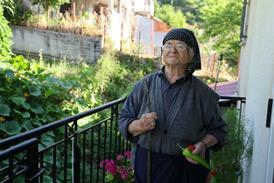Argentina has signed a series of agreements with its Latin American neighbours and Spain's autonomous regional governments as part of a drive to boost the production and distribution of Spanish and Portuguese-language films.
As part of the first protocol, signed at last week's Mar del Plata International Film Festival, countries belonging to Latin America's nascent economic community Mercosur, which comprises Argentina, Brazil, Paraguay and Uruguay, joined with Bolivia and Chile to set up a permanent forum made up of representatives of film bodies from each country.
This forum is to develop a common audiovisual programme aimed at strengthening their countries films' performance at home and abroad.
"As globalisation gathers pace, we have to stop building barriers between Latin American countries and restore the unity the continent once had," said Washington Algare, director of Uruguay's National Audio-visual Institute, INA.
Gustavo Dahl, president of Brazil's film body ANCINE, added: "This forum emerges from our need to assert our identity and implies the possibility of setting a symmetrical relationship with foreign film markets."
In addition to this agreement, the Argentinian Film Institute, INCAA, and Brazil's ANCINE also agreed to back the distribution of eight films in each other's markets in 2003.
It is believed to be the first such co-distribution arrangement ever to be signed in Latin America.
Dahl said, "Our future depends on this innovative project, which will involve public and private partners." Despite the fact the two countries are neighbours, few films cross the border, partly because of the language barrier.
It was apt that the winner of Mar del Plata was a Brazilian film, Domingos De Oliveira's Breaking Up (Separacoes).
A third agreement, the Roots Project (Proyecto Raices), attempts to strengthen ties between Argentina and the European countries with which Argentina shares cultural and ethnic roots, primarily Spain, Italy and Russia.
The first stage of the plan was enacted on Monday with the signing of an agreement to develop co-productions with six autonomous regions of Spain and the selection of 20 projects entered for a scriptwriting contest whose stories "draw on the shared experiences of people in Argentina and Spain".



















No comments yet